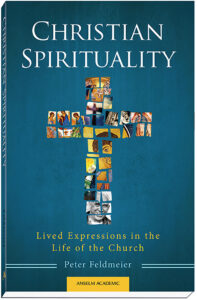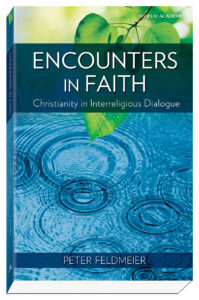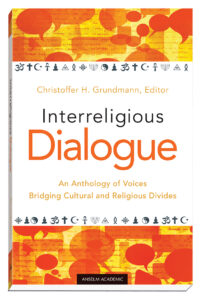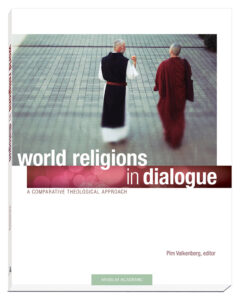God at the Margins
Making Theological Sense of Religious Plurality
About This Book
Overview
God at the Margins: Making Theological Sense of Religious Plurality explores the places to find God that have been historically overlooked by Christian tradition. Known as “the margins,” these places often go unseen, except by those who dwell there due to factors such as gender, economic poverty, and religious identity. Through overviews and in-depth explorations, the text introduces readers to contemporary interreligious work and its methodologies, which recognize God’s presence among religious others and embrace the experiences of those who are not Christian as theological sources. Discussion questions and suggestions for further reading enhance the learning process.
Details
| Weight | 0.4 lbs |
|---|---|
| Dimensions | 5.375 × 1.5 × 8.25 in |
| Format | Softcover |
| Print ISBN | 978-1-59982-188-7 |
| Pages | 150 |
| Item # | 7053 |
|---|
Customer Reviews
“In the last forty years, liberation theology, feminist theology, and theologies attentive to religious diversity have been rethinking central topics in Christian theology. In this concise volume, Light brings together these disciplines and the synergy among them. God at the Margins serves as a solid introduction to these theological fields and the future that might emerge at their intersection. With eminently accessible prose, this volume is recommended for students of theology and anyone interested in incorporating the growing edges of Christian theology into mainstream discussions.”
Fordham University
“God at the Margins is an accessible and insightful introduction to Christian interreligious work. . . . Within [the] broader dynamic of finding God beyond traditionally privileged places, Aimee Upjohn Light traces recent developments in theology of religions, interreligious dialogue, and comparative theology and explains the ways in which these fields are enriched by and converging with liberationist and feminist concerns. God at the Margins is perfect for any number of courses in contemporary Christian theology that address method in theology, liberation theology, feminist theology, or interreligious theology.”
Loyola Marymount University
Los Angeles
” . . . a visionary picture of how theologies committed to social justice stem from a Christological paradigm. God at the Margins explicates how liberation theology, feminist theology, and theology of religions are central to the prophetic mission of the church. Through exceptionally lucid writing, Aimee Upjohn Light draws needed attention to a serious engagement with non-Christians not only as possible sources of holiness but also as the privileged sites for God’s self-revelation. She presents and analyzes the most promising comparative and interreligious work of contemporary theologians and then frames a Christian theology that builds upon these foundations. . . . Students of theology and religion will find the book both informative and insightful in the pressing demands it makes of any Christian theological mission that strives to be truly catholic, or universal.”
Baton Rouge, Louisiana
“God at the Margins does two things: (1) offers a refreshingly lucid overview of the contemporary Christian conversation (often contentious) about how to make sense of and engage religious diversity, and (2) offers a perspective that will clarify and vivify that conversation. Let Christians (really, all religious believers), both scholars and ordinary folk, first listen to the voices of those suffering on the margins—especially the universally marginalized: women—and then, in light of what they hear and feel, engage in their theologies of religions and their comparative theologies. [Aimee Upjohn Light’s] message needs to be taken seriously by anyone concerned about living religiously in an ever-more-connected multireligious world.”
World Religions and Culture
Union Theological Seminary
Table of Contents
Introduction
- Where Christians Find God
- God at the Margins
- Margins Coming Together
Chapter 1: Liberation Theology
- Historical Context and Development
- Key Ideas of Liberation Theology
- Conclusion
Chapter 2: Feminist Theology
- Christian Feminism
- Secular Feminism
- Christian Feminist Theology
- Conclusion
Chapter 3: Theology of Religions
- How Christianity Relates to Other Religions
- Three Approaches to Non-Christian Religions
- Conclusion
Chapter 4: Post-Pluralist Approaches to Interreligious Work
- New Methods and Theology of Religions
- Theology of Religions: A Stalled Project?
- Interreligious Dialogue
- Comparative Theology
- Multiple Religious Belonging
- Conclusion
Chapter 5: Interreligious Methods and God at the Margins
- Is Theology of Religions Needed?
- Theology of Religions as a Theology of Liberation
- Gendering Theology of Religions
- Conclusion
Conclusion
- The Religious Other in the Twenty-First Century
- Three Methods of Interreligious Inquiry
- Recognizing God’s Active Presence
- A Shift in Theology
- Expanding the Conversation: Deepening Theology of Religions
Professional Reviews
“Aimee Upjohn Light provides us with a survey of theologies dealing with the liberation, feminist, and interreligious movements. The survey is used to strongly advocate for a theology of religions that is inclusive of the theologies resultant from these movements. The common denominator to all these theologies is that they deal with those on the margins where God is revealed in a unique manner different than in those previous theologies constructed over the last two thousand years. Her surveys are comprehensive as well as well argued. The reader is provided with arguments for and against the diverse views she presents. Any unease with the overall arguments and positions of these theologies are well known: a too-easy acceptance of God’s presence without an advocacy for a deep and necessary discernment process; the centrality of experience with only a hint at logical and scientific analysis; a claim to wholism without an equal challenge to balance all the relationships, both formal and informal, that are necessary to bring the common good; an urging for not only confrontation with the theologies of the past but also advocacy for a common search to build a new theology out of the central principles of all past theologies. Anyone doing theology today is familiar with these theologies and the theologians associated with them. The audience for this book would be upper-level religious study classes as well as interfaith / interreligious programs done in a Roman Catholic context.”






